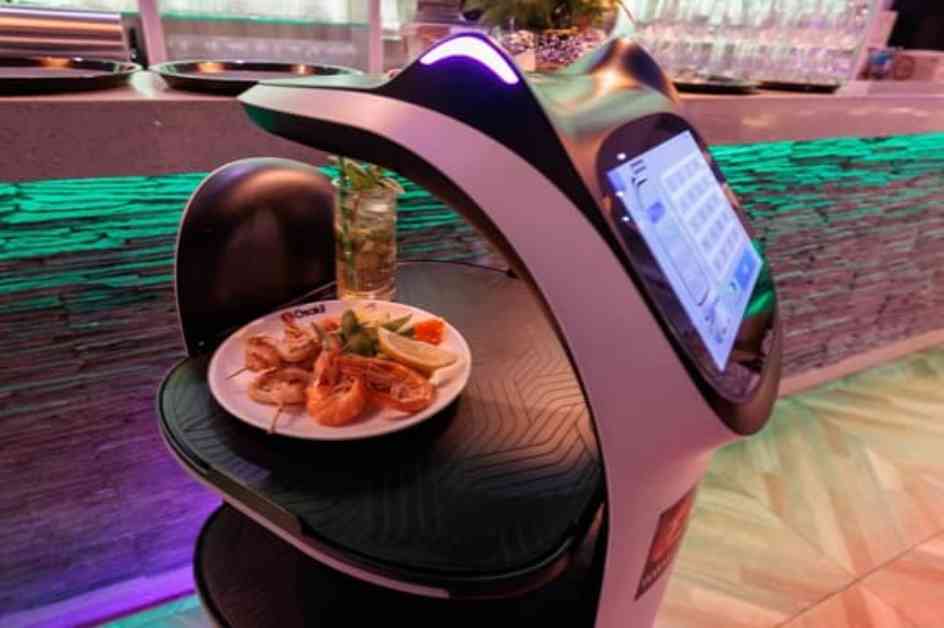Innovative Restaurant Concepts to Attract New Customers in London
The restaurant industry in London is fast-paced and highly competitive, making it crucial for establishments to continuously innovate in order to attract new customers and maintain sustainability. Creative restaurant concepts play a key role in developing customer loyalty and enhancing the reputation of a brand. Here are some state-of-the-art concepts and ideas that can help restaurants stand out in the crowded market competition.
Farm-to-Table Dining
Farm-to-table dining has gained momentum in recent years due to consumers’ increasing interest in freshness and locally sourced ingredients. This concept emphasizes the direct relationship between restaurants and local farmers to achieve sustainability and community engagement. By offering seasonal dishes made from ingredients grown or raised nearby, restaurants can attract eco-conscious patrons. Transparency regarding sourcing practices builds trust and strengthens the restaurant’s brand.
Farm-to-table restaurants often have menus that change frequently based on seasonal availability, ensuring the quality and freshness of ingredients. Events or collaborations with local farms further engage customers and demonstrate a commitment to supporting local agriculture.
Experiential Dining
Dining is an immersive experience that can leave a lasting impression on guests. Experiential dining goes beyond serving meals by incorporating activities such as interactive food preparation, themed environments, and multisensory experiences. Restaurants can create unique experiences by offering chef’s tables where guests can watch their meals being prepared, or by designing themed restaurants that transport guests to different eras or locations.
Live entertainment and virtual reality experiences can further enhance the dining experience and attract a diverse range of clientele. By offering more than just a meal, restaurants can become destinations for both locals and tourists.
Health-Conscious and Dietary-Specific Menus
Special diet menus are effective differentiators for restaurants, especially in a time of increased health and fitness awareness. Restaurants can attract health-conscious consumers by offering vegan, gluten-free, or keto diet options that cater to a wide variety of dietary preferences and restrictions. Using superfoods, organic ingredients, and nutritional information in menus can further appeal to health-conscious customers.
Providing transparent labeling and modification options to accommodate various diets and preferences can enhance customer satisfaction. Additionally, offering meal planning and subscription services for busy health-conscious customers can create a loyal customer base.
Technology-Enhanced Dining
Technology plays a crucial role in streamlining restaurant operations and enhancing the customer experience. Implementing innovations such as self-service kiosks, digital menus, and contactless payment options can improve efficiency and convenience. Modern restaurant POS systems are transforming how orders and payments are handled, while digital menus with interactive features can provide personalized experiences for customers.
Technological trends like augmented reality menus or robot waiters can help restaurants stay at the forefront of innovation. Reservations and waitlist management technology can optimize table turnover and minimize customer wait times, further improving the dining experience.
Sustainable Practices
Consumers are increasingly making decisions based on environmental impact, making eco-friendly practices a valuable addition to restaurant concepts. Strategies such as waste reduction, composting, recycling, and using energy-efficient appliances can reduce a restaurant’s ecological footprint. Utilizing sustainable materials for decoration and partnering with organizations to repurpose food waste can appeal to environmentally-conscious diners.
Marketing efforts and social media promotion can highlight a restaurant’s sustainability efforts and attract customers who value ethical and green practices. Having a zero-waste kitchen and emphasizing sustainability in all aspects of operations can set a restaurant apart in a competitive market.
Unique Dining Formats
Drawing inspiration from unconventional dining formats can help restaurants differentiate themselves from competitors. Pop-up restaurants, food trucks, and guest chef collaborations offer flexible opportunities to test new concepts without committing to a fixed location. Pop-up restaurants generate buzz and media interest, while food trucks can reach a larger audience and serve various events.
Immersive dinner formats, such as dining in the dark or on rooftops, provide unique atmospheres that appeal to adventurous customers. These innovative formats can position a restaurant as a trendsetter in the industry and create memorable dining experiences for guests.
In conclusion, implementing innovative restaurant concepts can give establishments a competitive edge and attract new customers in London’s bustling restaurant scene. By incorporating farm-to-table dining, experiential experiences, health-conscious menus, technology enhancements, sustainable practices, and unique dining formats, restaurants can differentiate themselves and build customer loyalty. With a focus on creativity and customer satisfaction, restaurants can thrive in a crowded market and stand out as leaders in the industry.












